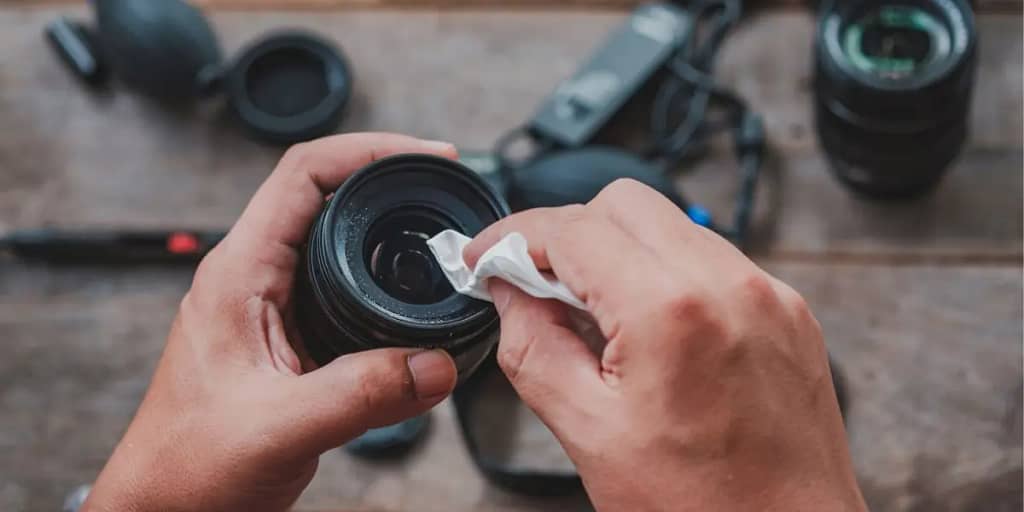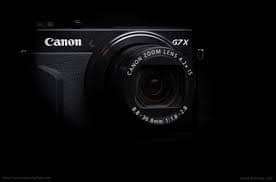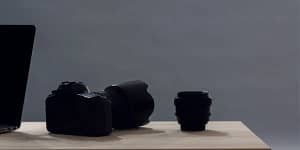Last Updated on: 26th January 2023, 10:04 am
Cleaning a camera lens is important to keep your camera in good working condition. Lens cleaning should be done carefully and gently, using only lens cleaning solutions and tools specifically designed for the purpose.
Lens cleaning is a delicate process that requires careful attention and the proper tools. Once you’re finished cleaning, store your camera in a safe place until you’re ready to use it again. With good care, your camera will continue to take beautiful pictures for years.
Cleaning the lens is one of the most effective and important steps in capturing sharp, vibrant images. In this blog, we’ll discuss the best methods for cleaning your camera lens to achieve stunning results every time you clean dust under the camera lens.
How Often Should You Clean a Camera Lens?
Depending on the state of the lens, it is generally a good idea to clean it when it becomes dirty. If you’re shooting all day, this might mean that you should give it a quick clean a few times a day.
Taking out your camera from its case, you can take care of it with a weekly clean. Check the front and back of the camera lens when you take it out of its case.
You should clean it before you shoot if you notice any smudges, dust, or other spots on the lens, or else you will think about switching between different focal lengths or apertures. While the real problem is with a dirty lens.
How to check a Dirty Camera Lens?
Often you may not see the dirt and debris inside a camera lens. You can perform a dirt test to see if it is necessary to clean the lens. Here’s how you can do that:
Set lens
Ensure your lens is set to manual focus and that you aim at the furthest point away. Lock it in place once it has been focused.
Set aperture
Make sure the aperture is set to a narrow gap. The higher the aperture, the better the image quality will be.
Click image
Make sure your camera is pointed at a bright, clear surface, like a white wall or a blue sky, and take a picture or two.
Check image quality
As you view the photo with your camera, phone or computer, zoom in on it and ensure that all parts of the picture are clear and smudge-free. You must clean the camera, phone lens, or sensor if you see any spots, streaks, lines, or smudges on the image.
How to Clean a Camera Lens?
Let’s look at the best way to maintain a camera lens. We have four methods to try. You’ll notice you can’t clean lenses with household items. You should invest in lens cleaning products. Choose the most effective method or combine these cleaning methods to get even deeper results.
1. With an Air Blower
Position lens:
If there is enough light, you should be able to see dust and debris leaving the surface as you position the lens upward.
Blow air onto the lens:
Ensure the air blower or compressed air is positioned at a 45-degree angle from one side of the lens. Blowing air onto the lens will lift dust and debris, so rotate it as necessary.
2. With a Soft-Bristled Brush
Position lens:
Make sure you face the lens upwards again to see what you’re doing clearly.
Brush:
Continue sweeping gently from one side of the lens to the other until you are satisfied with the results.
Don’t forget the grooves:
The brush should reach into tight grooves and edges of your lens. You may also need to work harder to remove sticky residue.
3. With Microfiber Cloth and Lens Wipes
Position lens:
Ensure that the lens is facing upwards and that you are working in the proper light.
Fold the cloth:
You can fold your microfiber cloth into a square or triangle to make it more comfortable.
Wipe:
To remove dust, debris, and streaks from the lens, wipe it gently with a soft cloth. Afterward, make a circular motion by moving from one side to the other.
Wipe with lens wipe:
The final step is to clean the lenses with disposable lens wipes. These wipes contain a cleaning solution that can provide a deeper clean and remove sticky residue.
4. With Lens Cleaning Fluid
Apply liquid:
To clean lenses, apply 3-5 drops of lens cleaner to a microfiber cloth or lens tissue.
Position lens:
Make sure the lens is held upright in proper lighting conditions.
Wipe:
The lens should be gently wiped from side to side with a soft cloth.
Dry lens:
The remaining fluid can be removed with a dry microfiber cloth or lens tissue by using a dry microfiber cloth.
Examine:
The lens should be examined to see if it is clean. If it is not, repeat the above steps to clean it.
How to Clean a Camera Lens without Lens Cleaner?
You can make your lens cleaner at home if you don’t have any lens cleaner fluid or lens cleaning wipes but still need liquid to remove stubborn marks on your lenses.
Distilled water is mixed with 99 percent isopropyl alcohol 50:50 to create the lens cleaner. Apply a few drops of the solution to a cloth and wipe the lens from left to right.
Ensure you wipe the lens with a dry microfiber cloth, then allow the lens to air dry. Once the lens is completely dry, apply a few drops of the solution to a spray bottle and mix well.
How to Clean Camera Lens Fungus?
If you find that your camera lens has developed fungus. While it may look unsightly, it is relatively easy to clean and should not cause permanent damage to your lens. Here are a few simple steps to follow in cleaning your camera lens fungus:
- First, gently wipe the lens with a soft, dry cloth. If there is any debris or dirt on the lens, this will help to remove it.
- Mix a solution of equal parts distilled water and white vinegar. Dip a clean cloth into the solution and then use it to wipe down the lens.
- Once you have wiped the lens with the vinegar solution, rinse it with distilled water. Dry the lens with a soft, dry cloth.
- If you still see fungus on the lens, try wiping it down with isopropyl alcohol. Dip a clean cloth into the alcohol and then use it to wipe down the affected area. Rinse off the alcohol with distilled water and dry the lens as before.
With just a little care and effort, you can easily clean camera lens fungus and keep your equipment in top condition.
How to Keep a Camera Lens Clean?
Our top maintenance tips will ensure your camera and smartphone lenses are in the best condition possible. After all, we love to take photos of our lives and upload them; your lenses need to be clean.
- Attach a lens cap to your camera whenever you’re not using it, especially before placing it in its bag.
- Ensure you always carry your camera in a bag so that dust and damage don’t occur.
- Always tilt the camera down when you change lenses to prevent dust from clogging up your lens. Wipe dust and dirt off your lens mount and lens regularly. Cleaning your camera lens before each use is a very effective way to keep dust out.
- Cleaners with abrasives, chemicals, hard-bristled brushes, baby wipes, clothes, cotton swabs, or soap should not be used on your lenses. They will cause damage and leave behind lint.
- Moisture and humidity can damage your camera lens. If you live in a humid area, you can store your lenses and cameras in dry cabinets to prevent damage.
- When changing lenses, avoid touching the lens glass as much as possible. The more you touch the glass, the dirtier it will get.
- You can even use UV filters while you’re shooting to protect your lens from dirt, dust, and smudges, preventing cracks and scratches. You don’t need to remove the UV filter while shooting.
How to clean a camera mirror
Cleaning a camera mirror is an important task to maintain the quality of your images. You can follow these steps to avoid scratching your camera.
- Turn off the camera and remove the lens. This will ensure that the mirror is in a safe position for cleaning.
- Use a blower brush to remove any dust or debris from the mirror. You can also use a can of compressed air to blow away any particles.
- If there are any spots or smudges on the mirror, use a small, soft-bristled brush to remove them gently. Be careful not to scratch the surface of the mirror.
- If the spots or smudges are persistent, you can use a lens cleaning solution and a microfiber cloth to wipe the mirror gently. Be sure to use a small amount of solution and not allow any liquid to seep into the camera body.
- After cleaning, use the blower brush or compressed air again to remove any residual cleaning solution.
- Reinstall the lens and test the camera to ensure that the mirror is clean and that there are no spots or smudges on your images.
It is important to remember that these steps are for general cleaning, and if you have a specific issue with your camera mirror, it is best to consult the manual or an expert for detailed instructions.
Conclusion
Cleaning a camera lens is essential in maintaining your photos’ quality. Properly cleaning and caring for your camera lens can help prevent dust, dirt, smudges, and other debris from damaging or distorting the image you capture with your camera. With the tips mentioned in this article, you should now have the information you need to properly clean and care for your camera lens.
FAQs
Can you use rubbing alcohol to clean the camera lens?
When cleaning your camera lens with alcohol, I recommend 99% Isopropyl Alcohol diluted with distilled water at a ratio of 50/50. Some versions of Isopropyl Rubbing alcohol contain less than 99% and additional agents that can leave sticky residues.
Can you use Windex to clean a camera lens?
Yes, it is safe to use Windex to clean camera lenses. Wipes like these are safe and effective at removing fingerprints, dust, and grime without damaging the screen. Always unplug and turn off any device before wiping it clean.
Can you use eyeglass cleaner on the camera lens?
Eyeglass cleaners are designed for safely cleaning delicate surfaces, and camera lenses are no different. Just ensure that you follow the instructions carefully and don’t get any of the solutions on other parts of your camera lens, as this could cause damage. So if your lens has gotten dirty or smudged, grab some eyeglass cleaner and try it.



